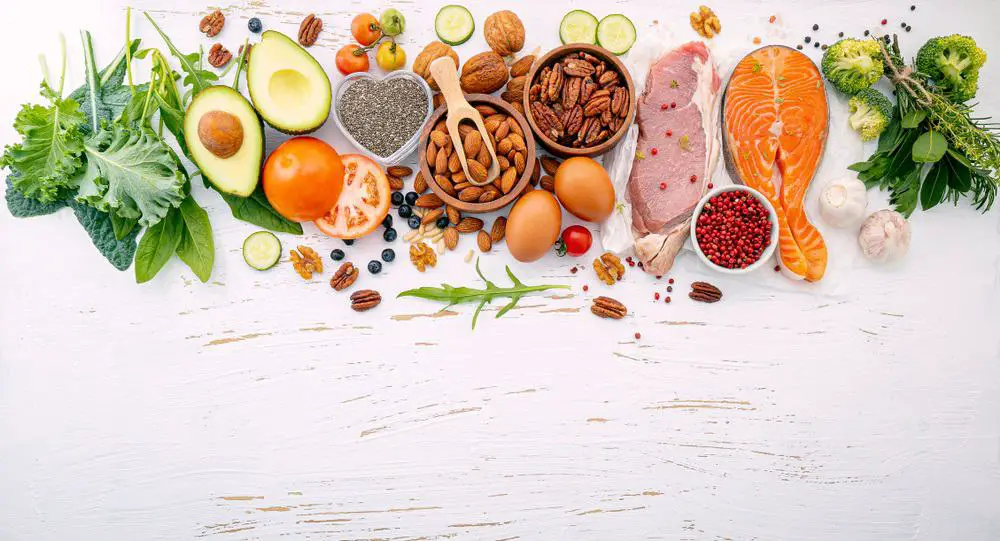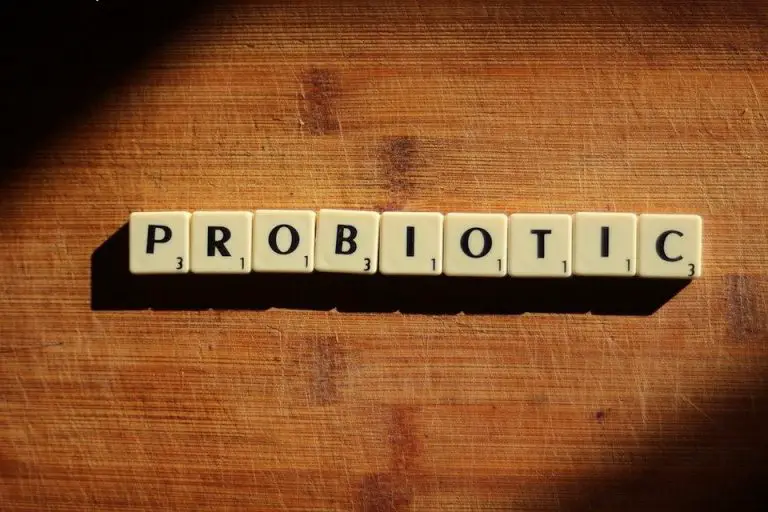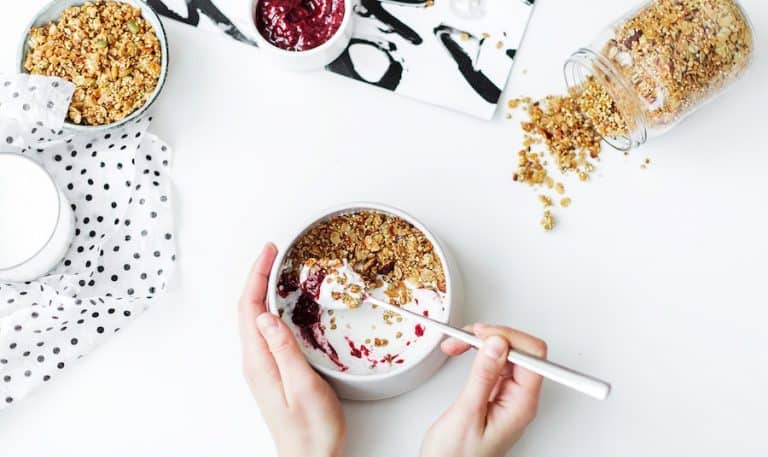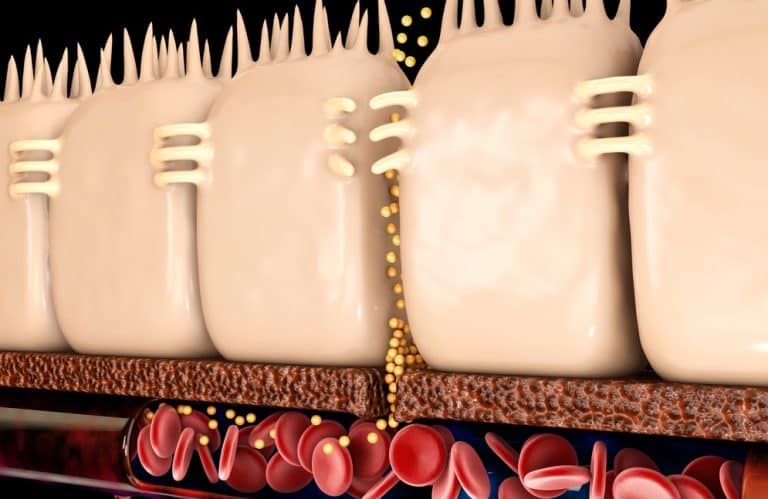Histamine Intolerant? Read This Before You Take Probiotics
By now, pretty much everyone knows about the health benefits of probiotics. Gut problems? Probiotics. Skin conditions? Probiotics. Vaginal itching and discomfort? Probiotics. And there’s a whole host of other perks of probiotics as well.
So many people have found relief from persistent health conditions simply by adding probiotics into their daily diet that it could be tempting to think that all probiotics are great for all people.
But this is just not true, especially if you’re histamine intolerant.
What Is Histamine Intolerance?
Histamine itself isn’t a “bad” thing. It’s a biochemical that is normally produced by immune cells during specific immune responses. The effects it produces may be unpleasant, but they’re necessary.
When you get a congested nose with seasonable allergies, that’s histamine doing its thing. However, it is involved in hives, bronchoconstriction, vasodilation, altered blood pressure, and immune responses to bug stings and bites.
Research shows that histamine promotes gastric acid secretion and behaves like a neurotransmitter that can inhibit or increase your body’s release of other neurotransmitters.
The only time histamine is a “bad” thing is when you make too much or your body can’t break it down quickly enough.
You might be unable to break down histamine if you have:
- A deficiency of Diamine Oxidase. Some histamine intolerance may stem from your body simply not having enough diamine oxidase, which breaks down the histamine in your body. If you don’t have the proper amount of diamine oxidase, histamine can build up and cause problems.
- Bad gut bacteria. Many gut bacteria degrade histamine. If you don’t have sufficient strains of histamine-degrading bacteria, your body won’t be able to degrade enough histamine, and this increases the histamine load on your body.
- HNMT deficiency. Your body produces another enzyme that degrades histamine. This is histamine N-methyltransferase, also known as HNMT. A deficiency in this will affect the amount of histamines in your body.
When you’re healthy, your ingestion and production of histamines are kept in balance by a natural enzyme known as diamine oxidase (DAO). This is the enzyme that breaks down histamines.
Some body processes will create histamine, while others will destroy it, so the overall system usually balances out. If you don’t have enough DAO, your histamines build up and cause symptoms.
Many symptoms of a histamine imbalance may be familiar to you. They include…
- Itching
- Rash
- Throat swelling
- Runny nose
- Hives
And a continued histamine overload, according to research, can lead to…
- Low blood pressure
- Nausea
- Diarrhea or constipation
- Migraines
- Increases in inflammation
- Fatigue
- Weight gain
So can probiotics help you…or will they make it worse?
The underlying cause of histamine intolerance is most likely due to the imbalance of gut microflora. The overgrowth of negative bacteria like Escherichia coli and Salmonella typhimurium and a gut infection can also cause an increased histamine release in the body. It can also ultimately lead to gastrointestinal damage as a result of a reduction in enzyme activity.
Types of Histamines
There are four different histamine types we have found: H1, H2, H3, and H4.
- H1 histamines are known for playing a role in hives and allergies.
- H2 histamines release hydrochloric acid into the stomach
- H3 histamines are neurotransmitters and are more involved in conditions such as OCD and sleep disorders
- H4 histamines are found with allergies and asthma
How to Take Probiotics for Histamine Intolerance
If you have histamine intolerance and you’ve tried probiotics before with adverse side effects, there’s a good chance that you might have been taking the wrong probiotic strains for you.
The good news is that there are probiotics out there that can help your histamine intolerance – it’s all about the ingredients found in the specific probiotic supplements.
Here’s our short guide to navigating the probiotics aisle with histamine intolerance!
1. Avoid Histamine Producing Probiotic Strains
There hasn’t been too much study around the topic but based on the research available, scientists believe that some probiotic strains produce histamine. When you’re taking probiotics with histamine intolerance, you really want to avoid these strains.
So, that’s the first step to getting the benefits of probiotics while avoiding adverse side effects when you’re histamine intolerant. Here are the probiotic strains you definitely don’t want to be taking…
Lactobacillus reuteri
This probiotic has anti-inflammatory properties and helps in fighting infections. It decreases the symptoms of irritable bowel syndrome (IBS) and can lower cholesterol. However, it produces histamine, so it is not a good choice if you have histamine intolerance.
Lactobacillus helveticus
L. helveticus has several positive probiotic effects. They include its ability to remain alive in the stomach, reaching the intestine while still alive. It also helps your natural defenses against disease, may help in reducing cholesterol, and prevent – or reduce the duration of – diarrhea.
L. helveticus alleviates the symptoms of lactose intolerance and exerts activities against pathogens. These are valid benefits, but you may want to wait until your histamine levels are balanced before you begin using it since it is a histamine producer.
Lactobacillus casei
This probiotic is found in the intestine and mouth of humans. It inhibits the growth of harmful bacteria and promotes proper digestion. It can reduce some of the symptoms of IBS, fight pneumonia, and prevent bronchitis and inhibit infections of the respiratory tract.
L. casei also helps prevent ulcers by fighting the H. pylori bacteria and even aids in allergy relief. It reduces any intolerance to milk and supports the proper functioning of the liver.
This probiotic also inhibits vaginosis and Candida. On the other hand, L. casei does produce histamine and can lead to histamine intolerance symptoms.
Lactobacillus bulgaricus
L. bulgaricus is a valuable probiotic since it fights off viruses and boosts your overall immunity. It minimizes nausea and diarrhea and reduces the symptoms of a leaky gut. This probiotic fights inflammation and allergies, improve digestion of dairy, and helps to manage symptoms of HIV.
On the other side of the coin, L. bulgaricus produces histamine, resulting in side effects like acne, skin rashes, and swelling.
2. Take Probiotics That Are Histamine Degrading
If you have histamine intolerance, probiotics will be needed to stabilize your immune system before you introduce resistant starch. This is because resistant starch may ferment in your gut, which will produce histamine. A gut that is repopulated can regulate your immune system in the long term.
When choosing probiotics for histamine intolerance, keep in mind that it’s the strain of probiotics that’s important, not the genus. Each strain may lead to different benefits, even if they’re in the same species of probiotics.
So specifically, which probiotic strains are helpful for histamine intolerance? Based on research into histamine intolerance and probiotics, the strains below downgrade histamine and are beneficial even if you have histamine intolerance.
Bifidobacterium longum
B. longum is among the most important healthy bacteria types. It helps to maintain digestive tract normality and can prevent harmful bacteria growth. It also relieves abdominal discomfort and prevents diarrhea and constipation.
This probiotic aids in alleviating lactose intolerance, reducing cholesterol, and stimulating the immune system. It fights inflammation and allergies. Since it does not produce histamine, it offers all these advantages without the risk of aggravating histamine intolerance.
Bifidobacterium infantis
B. infantis is especially helpful for babies. Mothers pass it to babies as one of their first good bacteria, so it is often prescribed for pregnant women. B. infantis improves digestion and safeguards the immune system against infection and illness. It aids in the prevention of kidney stones.
This helpful probiotic helps in eliminating acute diarrhea and in curtailing symptoms of IBS. It increases immunity for infants of low birth weight. Since it degrades histamine, is it a good choice if you have histamine intolerance.
Lactobacillus rhamnosus gg
This probiotic is well-researched, and it adheres well to the intestinal wall. It’s a very safe probiotic and stimulates the immune system.
L. rhamnosus gg can reduce inflammation and allergies, increase glucose control, and boost your general immunity. It aids in decreasing constipation and helps to repair leaky gut.
In infants and babies, L. rhamnosus fights rotavirus diarrhea, decreases colic, and stimulates growth. It also does not cause an increase in histamines, so it will not aggravate your system, or that of your child, even if you or he happens to be histamine intolerant.
Lactobacillus salivarius
This probiotic improves the condition of your teeth and mouth and provides the robust protection of your teeth and gums. It is also found in the colon, vagina, and small intestine.
L. salivarius helps in the prevention of strep throat and reduces the symptoms of IBS. It inhibits the growth of Candida yeast and aids in preventing ulcerative colitis. It also prevents the pathogenic bacteria Salmonella and E. coli. Because it degrades histamine, it is a welcome addition to your probiotic plan since it will not trigger any intolerance symptoms.
Lactobacillus Plantarum
Present in your saliva and fermented foods, this probiotic strain helps reduce infections and encourages valuable antioxidants that reduce respiratory disorders and inflammatory responses.
L. Plantarum restores the healthy enzymes in your liver and maintains a healthy gut wall, which means that it fights leaky gut. This probiotic also alleviates fungal-type infections and reduces the symptoms of IBS. It lessens the seriousness of infections after surgery while lessening your risk of pneumonia. It even helps to stimulate immunity in children with HIV.
Since L. Plantarum degrades histamine, it gives you all these helpful benefits without the nuisance of histamine intolerance.
3. Watch for Fillers in Your Probiotics
Some probiotics contain many fillers and artificial additives, which can aggravate histamine intolerance. Powdered forms of probiotics have fewer. Vegetable gel caps contain only a few fillers.
Most chews and tablets have many fillers. Check the fillers or have your probiotics custom compounded if you are sensitive to artificial additives since you may have a negative reaction to the fillers and not to the probiotic strains themselves.
4. Consider Taking Single Strains of Probiotics
If you have histamine intolerance, then complex, multi-strain probiotics may be more likely to cause problems. While healthy people can use supplements with 10-20 various strains, your sensitivity means that you may need to rotate strains until your hypersensitivity is reduced dramatically.

What Is a Low Histamine Diet?
In addition to your probiotics, you can also follow a low histamine diet. If you have ever experienced a food allergy-like reaction to a histamine-rich food, then a low histamine diet should be followed; however, histamine levels in foods are definitely not easy to quantify.
Fermented foods often have higher levels of histamine, while unprocessed foods will have the lowest levels. High histamine foods include, but are not limited to:
- Fermented dairy products
- Fermented vegetables
- Kombucha
- Cured or fermented meats
- Tomatoes
- Eggplant
- Spinach
- Vinegar
So, instead of these foods, try eating foods that are as close to their original form as possible. Avoid processed foods and junk foods, and don’t plan on following this diet for more than four weeks at a time. Eat only fresh foods and always speak with a nutritionist or healthcare provider to see what nutrients you may miss.
How Long Should You Do a Probiotic Protocol for?
If you are treating chronic conditions or improving your general immune health, it is beneficial to continue to take probiotics for weeks or months at a time. Many people can tolerate probiotics well, making them ideal for daily use and helping restore and balance a healthy gut microbiome.
If you experience gas, bloating, or any other side effects that continue for more than a few weeks, you may want to stop taking your probiotics and consult your healthcare provider. When beginning a new probiotic regimen, some may experience an influx of gas, bloating, constipation, and even thirst. However, these side effects generally go away within a few weeks of taking the probiotic supplements.
The best way to get started recovering your gut health with probiotics may be to start on a single strain of probiotics and then gradually incorporate different strains.
FAQ
Still have more questions about histamine intolerance and probiotics? Read on for answers to some of the more commonly asked questions.
Are there any soil-based probiotics that are low histamine?
Saccharomyces Boulaardii and some other soil-based organisms don’t actually seem to degrade or produce histamine but can still be found to be helpful anyway. Soil-based probiotics have been found to benefit the treatment of small intestinal bacterial overgrowth in patients with IBS. One probiotic containing all four strains of Bacillus clausii was found effective.
Does Vitamin C lower histamine levels?
Vitamin C acts as a natural antihistamine. It reduces histamine in the body that is produced in response to an allergen. It can also help reduce symptoms like a runny nose, congestion, watery eyes, and sneezing.
What happens when you have too much histamine in your body?
If you have too much histamine in your body, you can develop peptic ulcers. Too much histamine stimulates the secretion of excess stomach acid. An ulcer can cause stomach pain, nausea, vomiting, and chronic diarrhea.
Disclaimer: While our team of medical expert writers makes every effort to convey the correct, relevant, and most up-to-date information, you should never disregard advice given to you by your medical practitioner or delay seeking medical assistance because of something you have read on Gutsify or received in correspondence from Gutsify. Please refer to our Terms and Conditions.









